Defective Products and Liability
Each year in the U.S., thousands of injuries are caused from defective products. Potentially all products on the market can be defective, as there are various steps a product undergoes, from the design, manufacturing, until it reaches the end user. Product liability law outlines the rules discussing who is responsible for dangerous or faulty products. Product liability law is different from ordinary injury law, as product liability law is designed to make it easier to obtain compensation after injuries occur. Product liability law refers to a seller or a manufacturer being held responsible for enabling consumers to buy defective products. The product should meet consumer expectation, including proper functioning without causing injury, under the product liability law. If a product is unsafe for consumers to use, then the product does not meet consumer expectations.
Because there is no federal product liability law, product liability claims are based off of state laws. Product liability claims typically involve the concepts of breach of warranty, strict liability, and negligence.
Liable Parties
In order for a product liability claim to be successful, the product has to have been sold legally, in the marketplace. A contractual relationship must exist between the injured consumer and the supplier of the product, but this may vary, depending on the state. As long as the product was sold to someone, any consumer who could have been injured by a faulty product may recover compensation for injuries.
Product defective liability may fall on any of the following parties:
- the product manufacturer
- the manufacturer of component parts
- the party that installs or assembles the product
- the wholesaler
- the retail store that sold the product
Legal regulations shift the burden proof in liability cases to the defendant, meaning the defect would not exist, unless a party was negligent. If this is the case, the plaintiff no longer has to prove that the defendant was negligent. Instead, the defendant now has to prove that they were not negligent.
Types of Product Defects
The types of defects that may potentially result in injury, and thus give rise to defective product liability:
- marketing defects: defects in the way the product was advertised, including poor instructions or faulty safety warnings
- manufacturing defects: defects caused from a manufacturer or assembly of the product
- design defects: appear in a product before manufacturing
Unavoidably Defective Products
There are some products on the market that would lose their effectiveness, if they were made safer. Picture a chainsaw. By nature, a chainsaw is severely dangerous, especially for those who are unfamiliar with how to properly use a chainsaw, and do not follow the safety rules in place. For products that are unavoidably safe, suppliers, manufacturers, and assemblers must warn consumers about the dangers of using the product. Common warnings include a warning sticker on the product itself, or the packaging of the product.
Defective products and liability of defective products may become complex, legally. If you become injured by a defective product, the first step is to seek proper medical attention. In addition to having medical experts assess your physical condition, medical reports will help you when you wish to file a claim. The next step is to hire a personal injury attorney, specifically with experience in defective product liability. As the case progresses, keep files of all medical paperwork and doctor visits. It will be essential that you prove that the defective product was manufactured, designed, or sold faulty, and that the manufacturer, designer, or seller was negligent when enabling you to buy and use the product. In addition to compensation, another benefit of filing a lawsuit for a defective product is to prevent other consumers from becoming unknowingly and unwillingly harmed by the product.
If you or someone you know has been injured in a car crash or truck accident and are in need of an accident attorney in Miami, Fort Lauderdale, West Palm Beach, Naples, Ocala, Orlando, Tampa, Gainesville, Jacksonville, Tallahassee, Ft. Myers or any other city in Florida –remember after 911, call 411! 1-800-411-PAIN can put you in touch with an experienced, aggressive network attorney who will fight for your rights and get the maximum compensation you deserve. Don’t forget to follow 411 PAIN on Twitter (@411PAIN), keep up with the conversation at #411PAIN and check out the 411 PAIN event gallery 411painevents.com!



